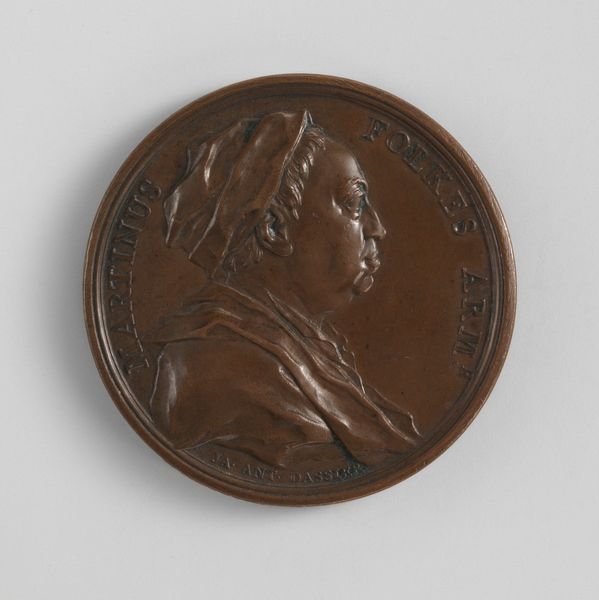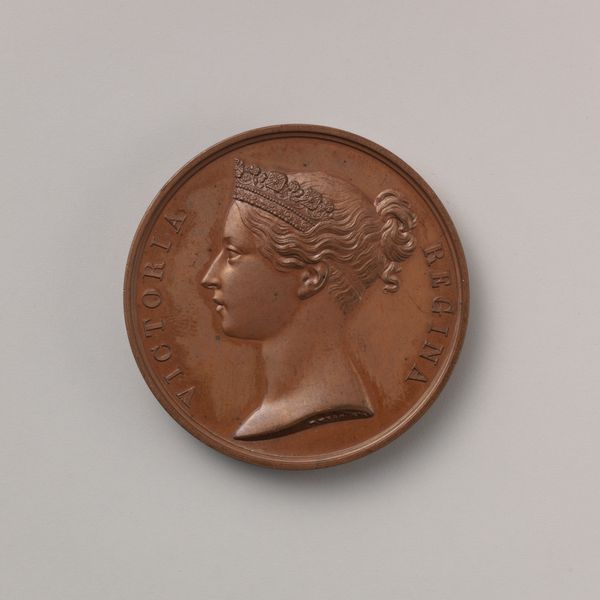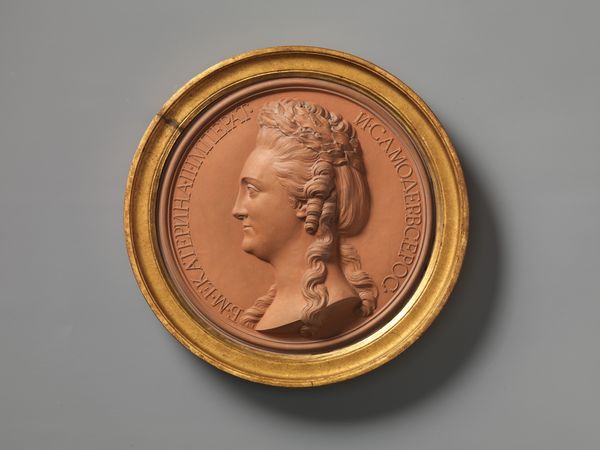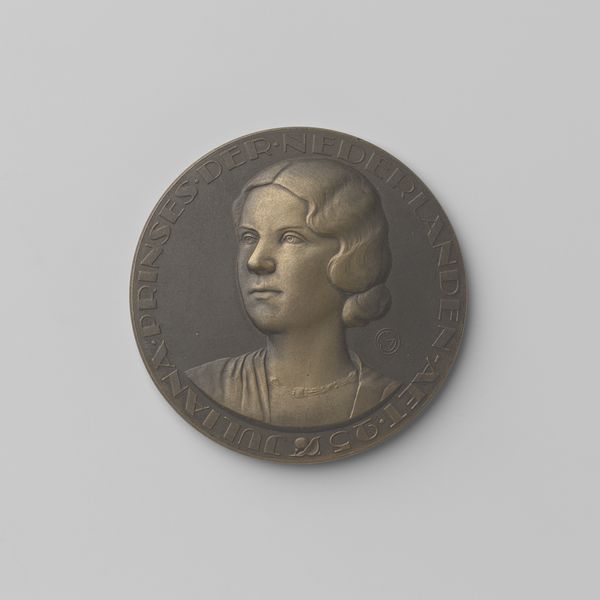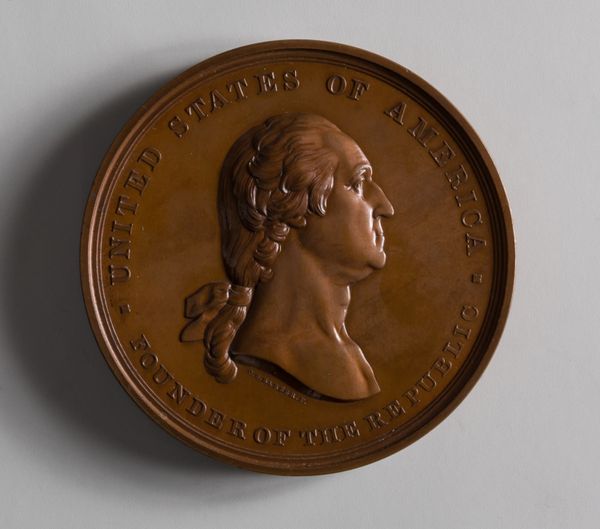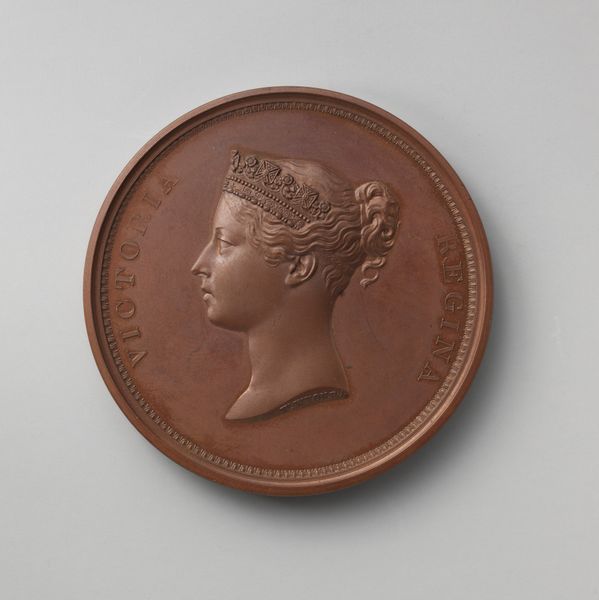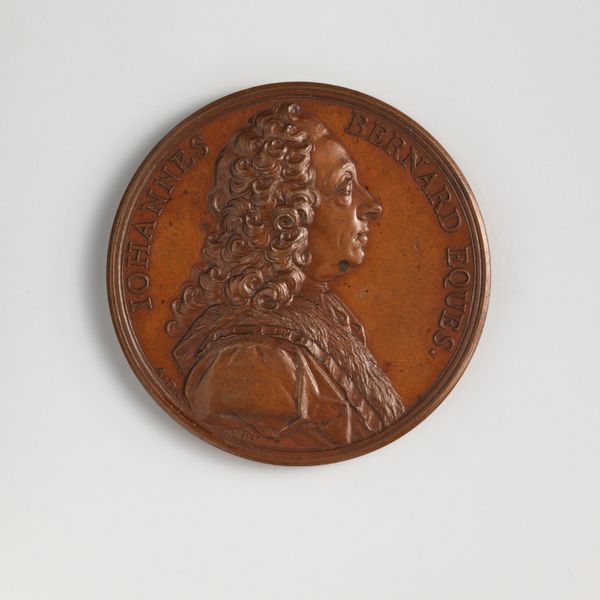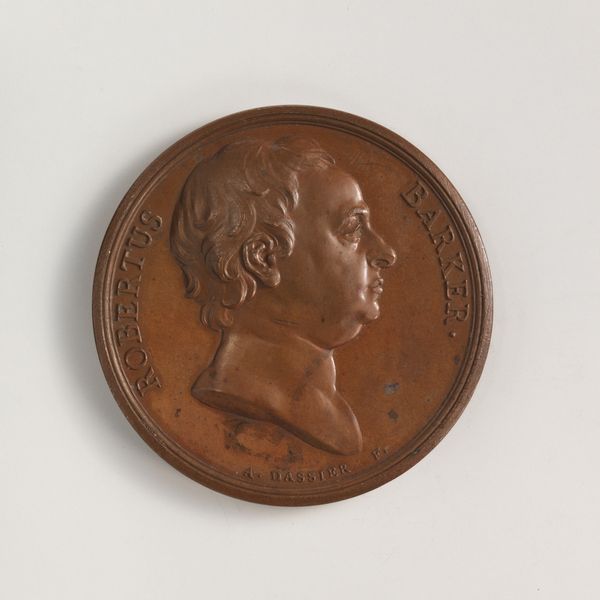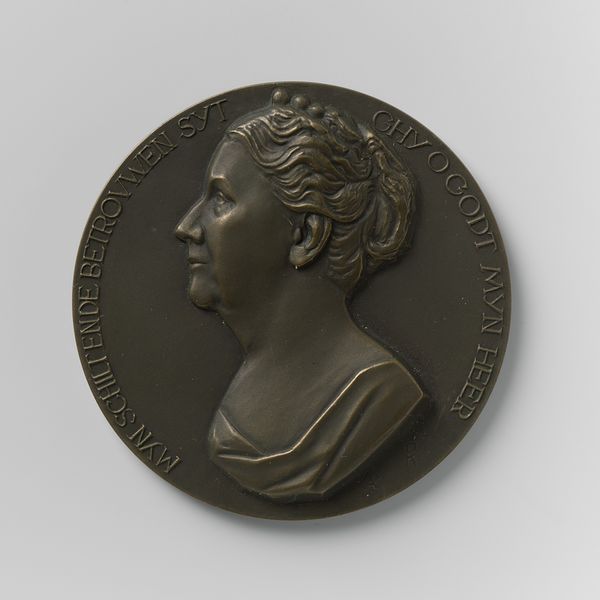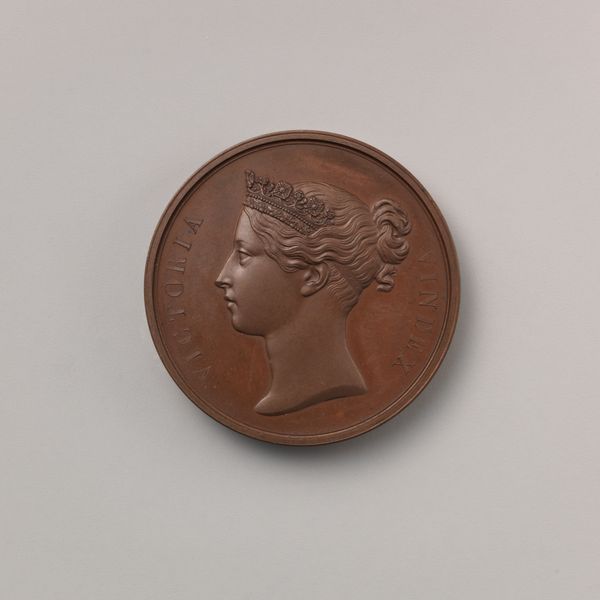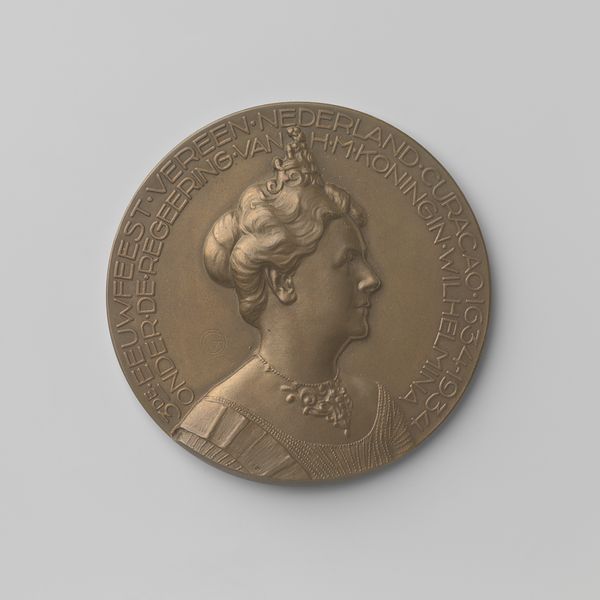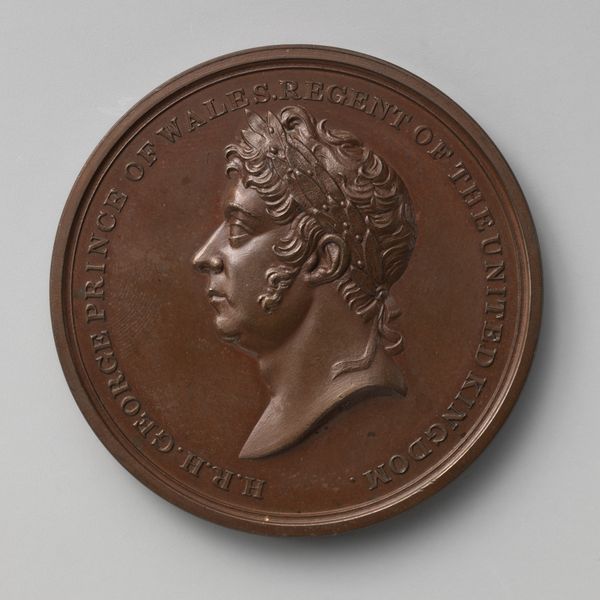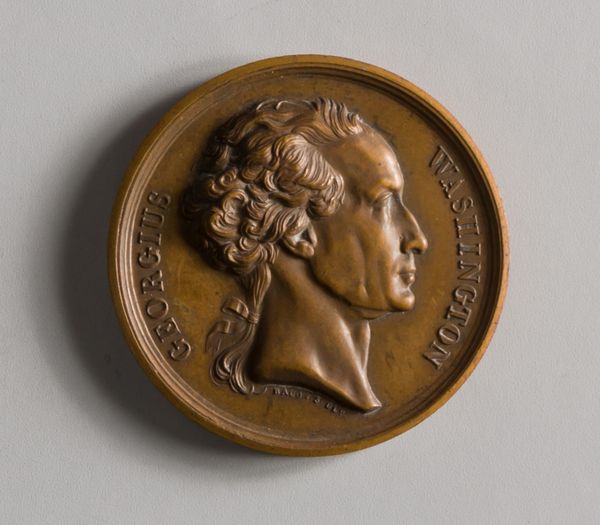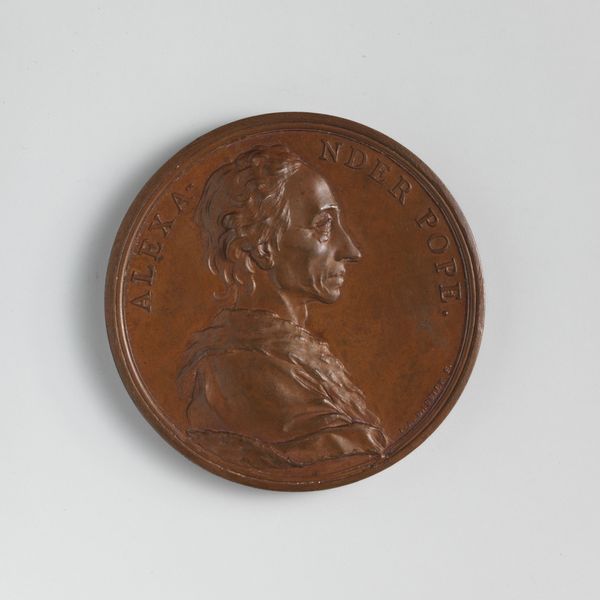
To Commemorate the Arrival in London of the Princess Alexandra of Denmark to Wed Albert Edward, Prince of Wales (Edward VII) in March, 1863 1863
0:00
0:00
relief, bronze, sculpture
#
portrait
#
medal
#
sculpture
#
relief
#
bronze
#
sculpture
#
decorative-art
#
profile
Dimensions: Diameter: 3 in. (76 mm)
Copyright: Public Domain
Curator: This bronze relief, created by Alfred Benjamin Wyon in 1863, commemorates the arrival of Princess Alexandra of Denmark in London. Editor: There's a restrained elegance to it, isn't there? The smooth planes of the face contrasting with the detailed hair, the way the bronze catches the light. It’s very poised and calm. Curator: Wyon was a prominent engraver, and you can see that expertise in the precision of the lines and the capturing of Alexandra’s likeness. But beyond the aesthetic, this medal signifies a major political event, marking the beginning of a significant royal alliance. It reminds us that artistry and craftsmanship have always served power. Editor: Agreed. Though one can't overlook how the use of bronze contributes to the piece’s quiet, contemplative quality. Its uniform colour lends a timeless aura that accentuates Alexandra's aristocratic beauty as she's turned in profile. It allows one to read into her regal identity. Curator: Absolutely, and the production of such medals would have involved a whole network of laborers. The mining of the metal, the casting process, the distribution. These aspects speak to the broader social context surrounding the royal event and the very creation of the artwork. Medals were circulated amongst common people, and also aristocrats, becoming commodities associated with British royalty. Editor: Indeed. And looking at the lettering along the rim, framing her face – the way "Alexandra" is subtly raised, almost becoming a part of her – that adds another layer to the formal composition. Semiotic precision meets classical ideal. Curator: So, it’s not merely an object of beauty, but also an object imbued with political meaning, made accessible to the masses through careful production and dissemination. We should view such pieces through both their inherent aesthetics and socio-historical implications, considering the value and purpose they were assigned. Editor: A compelling way to consider this artwork. It is always fascinating to investigate how materiality intersects with both symbolic weight and sheer optical allure.
Comments
No comments
Be the first to comment and join the conversation on the ultimate creative platform.
